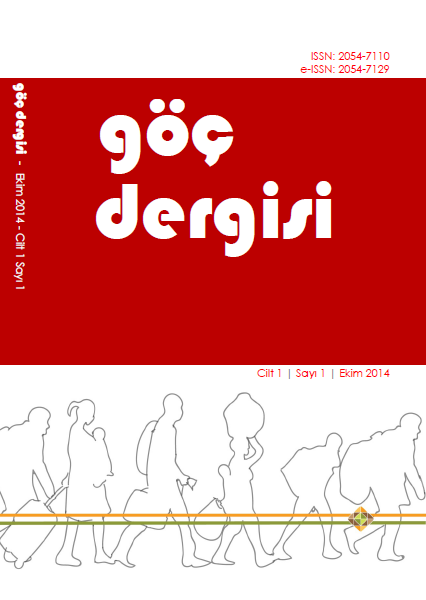Biyopolitika, güvenlik ve Frontex'in Türkiye-Yunanistan sınırındaki rolü
Biopolitics, security and the role of Frontex on the Turkish-Greek border
Author(s): Burcu Toğral KocaSubject(s): Security and defense, Migration Studies
Published by: Transnational Press London
Keywords: Biopolitics; development; frontex; migration; security;
Summary/Abstract: Following the end of the Cold War, global developments with their transnational effects have induced security scholars, policy makers and politicians to move beyond state-centric and military-focused conceptualization of security. In this transformation, discourses linking development to security have gained momentum. To put it differently, “liberal” states of the West have constructed a biopolitical distinction between “developed” and “underdeveloped” populations and administered the latter as a security threat to the former. Such framings and the nexus between security and development have had important repercussions for the mobility of people. The rich, skilled labours, tourists from “developed” West have come to enjoy the right to free movement without much of interruption. On the other hand, the “surplus” population, including asylum seekers, refugees, poor, unskilled and “irregular” migrants have been exposed to intense technological/bureaucratic control and surveillance practices. One of them is the introduction of Frontex for policing the European Union (EU)’s external borders against this “unwanted”/”surplus” population in conformity with new discourses linking development to security. This militarized body equipped with war-like devices has turned into a technology of containment related to the so-called threats stemming from “surplus” population. On the basis of these transformations, this paper aims to problematize and unpack these issues through building upon Foucauldian approaches on biopolitics as a technology of government. In particular, the paper, first, deconstructs the nexus between development and security in the EU’s migration regime. This analysis is made more tangible by looking into the activities of Frontex on the Turkish-Greek border. Finally, this paper draws the attention to the human rights implications of this security architecture and resultant practices.
Journal: Göç Dergisi (GD)
- Issue Year: 1/2014
- Issue No: 1
- Page Range: 57-76
- Page Count: 20
- Language: Turkish

